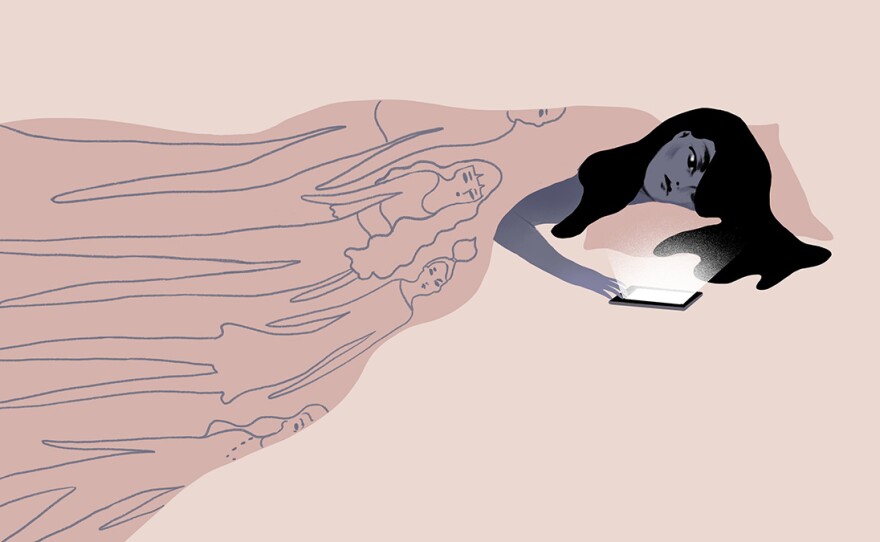The number of people dying by suicide in the U.S. has been rising, and a new study shows that the suicide rate among young teenage girls has been increasing faster than it has for boys of the same age.
Boys are still more likely to take their own lives. But the study published Friday in JAMA Network Open finds that girls are steadily narrowing that gap.
Researchers examined more than 85,000 youth suicides that occurred between 1975 and 2016. Donna Ruch, a researcher at Nationwide Children's Hospital in Columbus, Ohio, who worked on the study, tells NPR that a major shift occurred after 2007.
Researchers found the increase was highest for girls ages 10 to 14, rising by nearly 13% since 2007. While for boys of the same age, it rose by 7%.
"That's where we saw the most significant narrowing of the gender gap," Ruch says.
There was also evidence of racial and ethnic disparities in the study. The differences in suicide rates between boys and girls were greatest among non-Hispanic black youth.
The study did not explore why more girls are killing themselves.
A combination of different factors influence the risk of suicide, including family history, local epidemics of suicide, barriers to accessing mental health care and feelings of hopelessness or isolation.
Among people in the U.S. ages 10 to 19, suicide has become a leading cause of death.
Christine Moutier, chief medical officer at the American Foundation for Suicide Prevention, tells NPR that while multiple factors are likely driving the increase, social media might be playing a major role.
That's because, she says the vast majority of children and adolescents are spending a lot of time plugged into their devices. And while social media can make them feel more connected to people in their lives, Moutier says, recent studies show it can hurt their mental health.
"Heavy screen time, night-time utilization [of social media on devices] that affects sleep, people who have anxiety, depression or psychological vulnerabilities may have a more negative experience," Moutier says.
And some recent studies show that girls may be more vulnerable to the dark side of social media, says Joan Luby, a psychiatrist at Washington University School of Medicine who wrote a commentary that accompanied the new study.
"Girls are more often ... cyberbullied [than boys] on social media. They tend to have much more negative psychological effects to that cyberbullying," she tells NPR.
Social media has also changed how kids interact with one another, she says, noting that adolescents aren't having as many in-person interactions, which are vital to protecting against mental health issues.
Luby says she wasn't surprised by the study's findings, especially after a study by the Centers for Disease Control and Prevention showed that suicide rates for girls ages 10 to 14 tripled between 1999 to 2014.
She stresses the need to learn more about what's driving the trend.
"If we had data like this that pertained to a medical illness," Luby says, "we would be seeing very, very rapid action from public health sectors."
Copyright 2019 NPR. To see more, visit https://www.npr.org.






